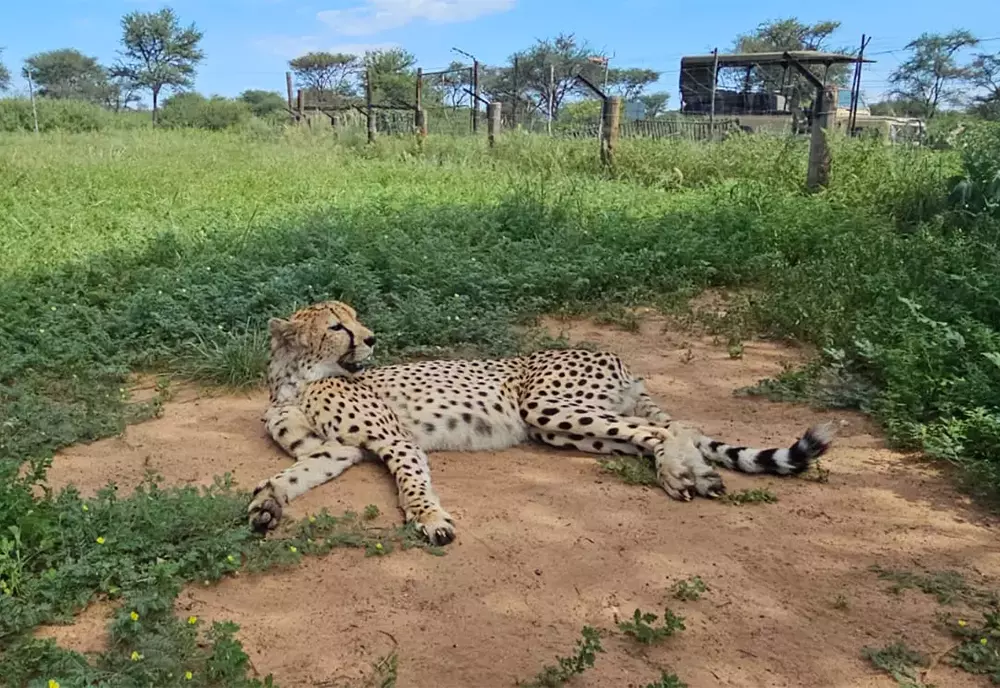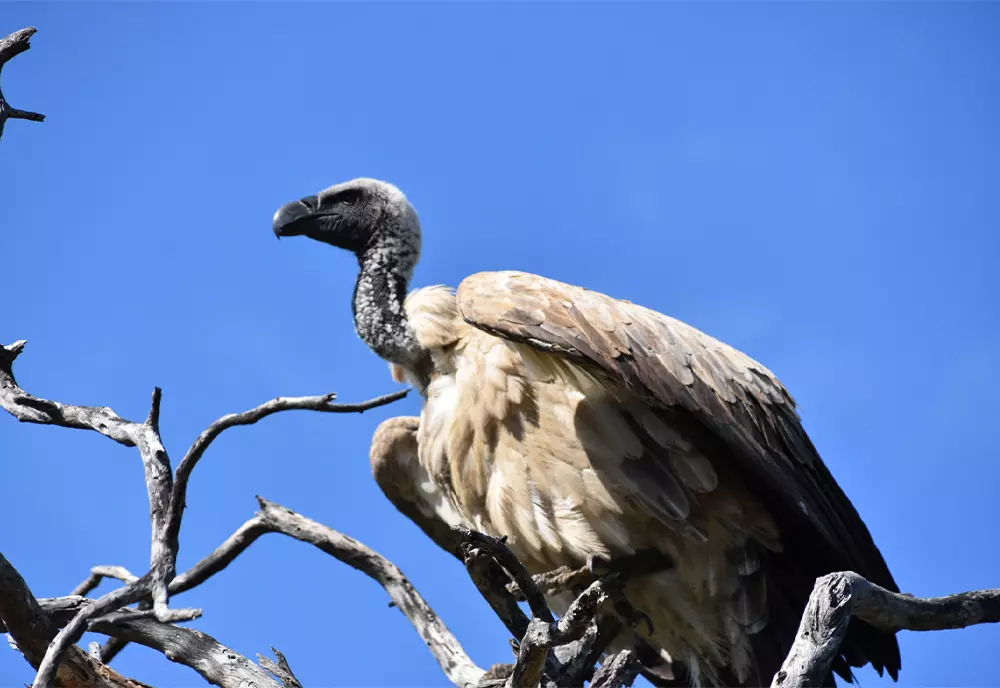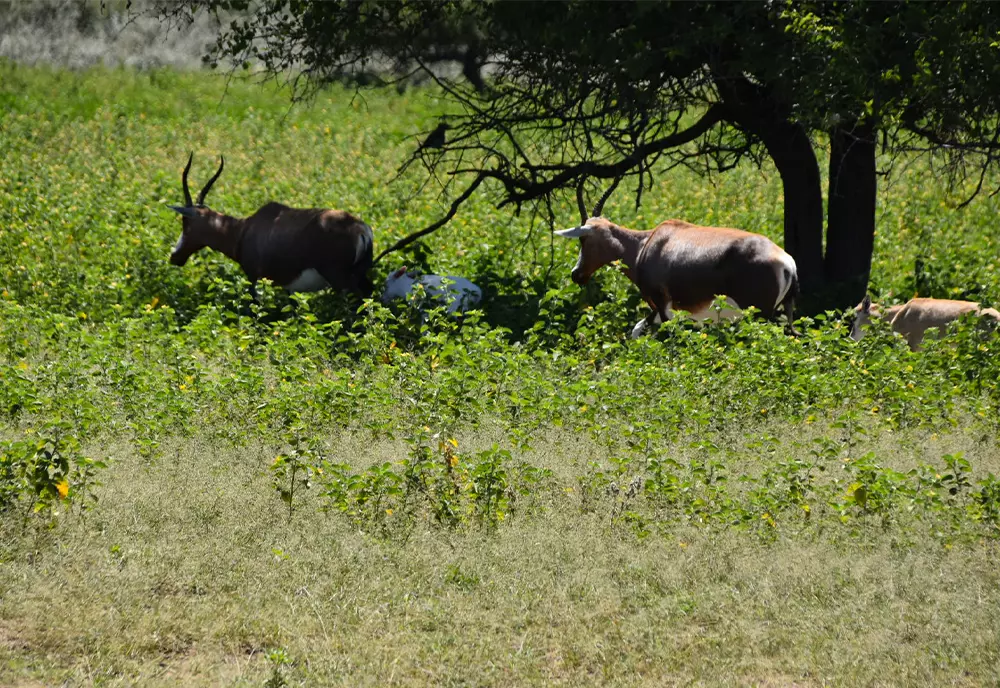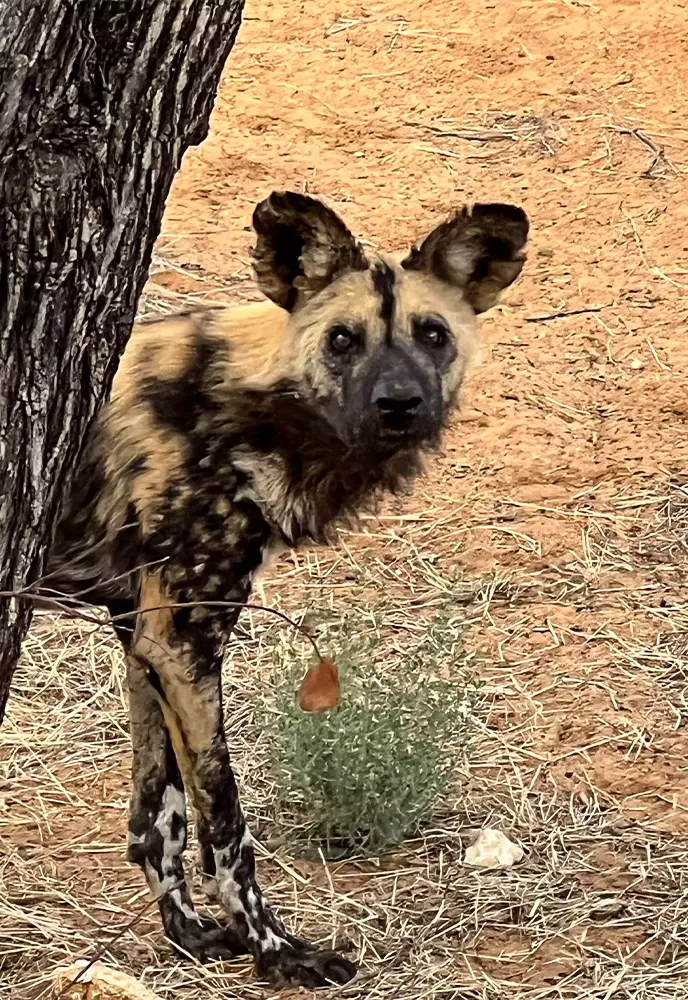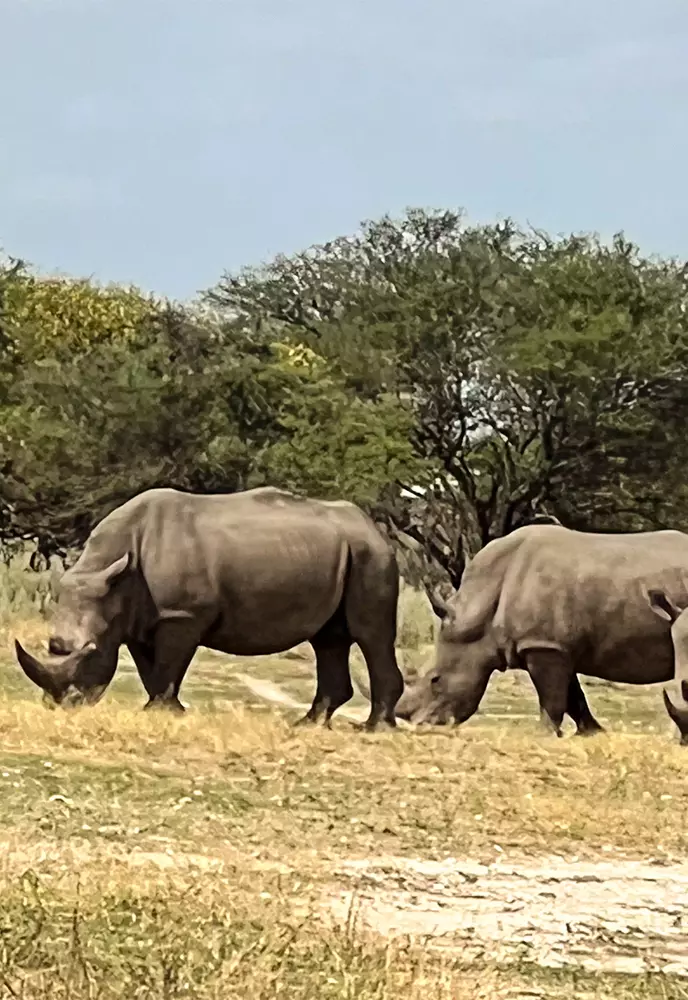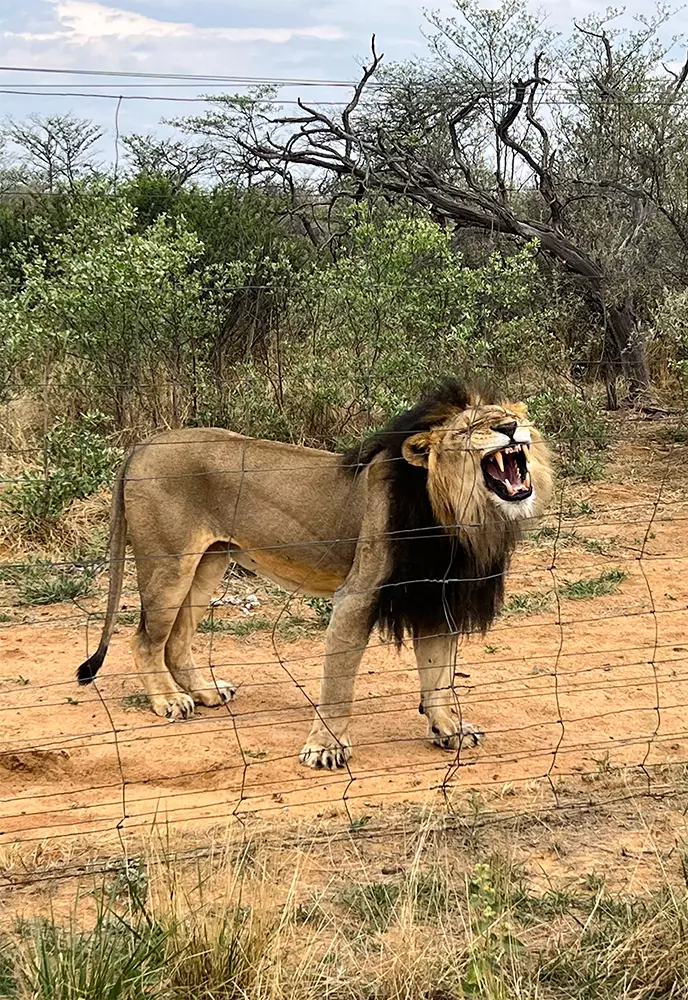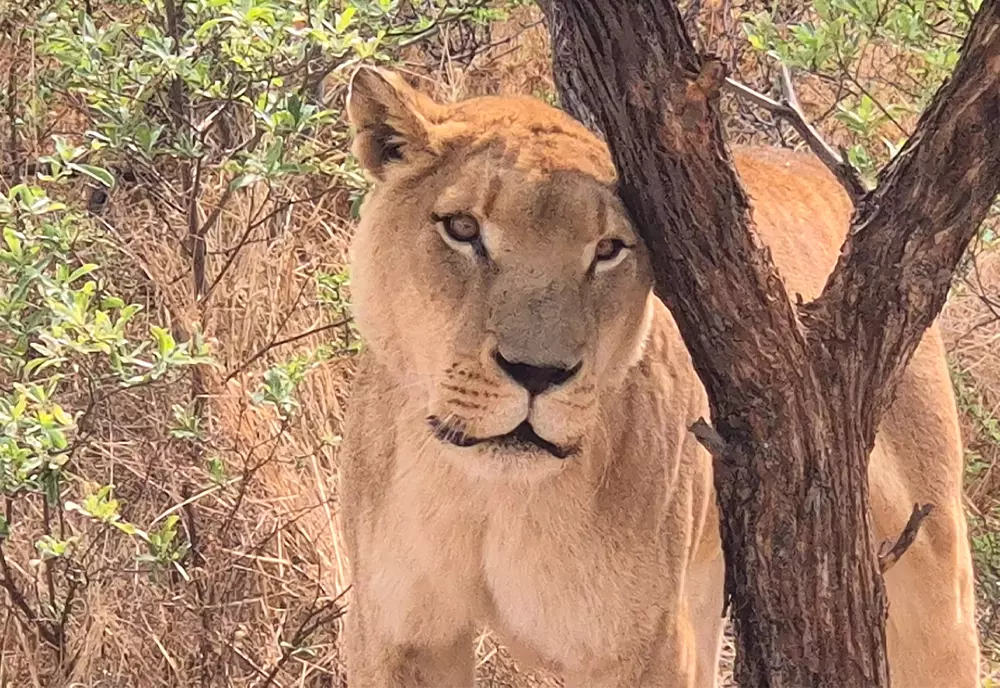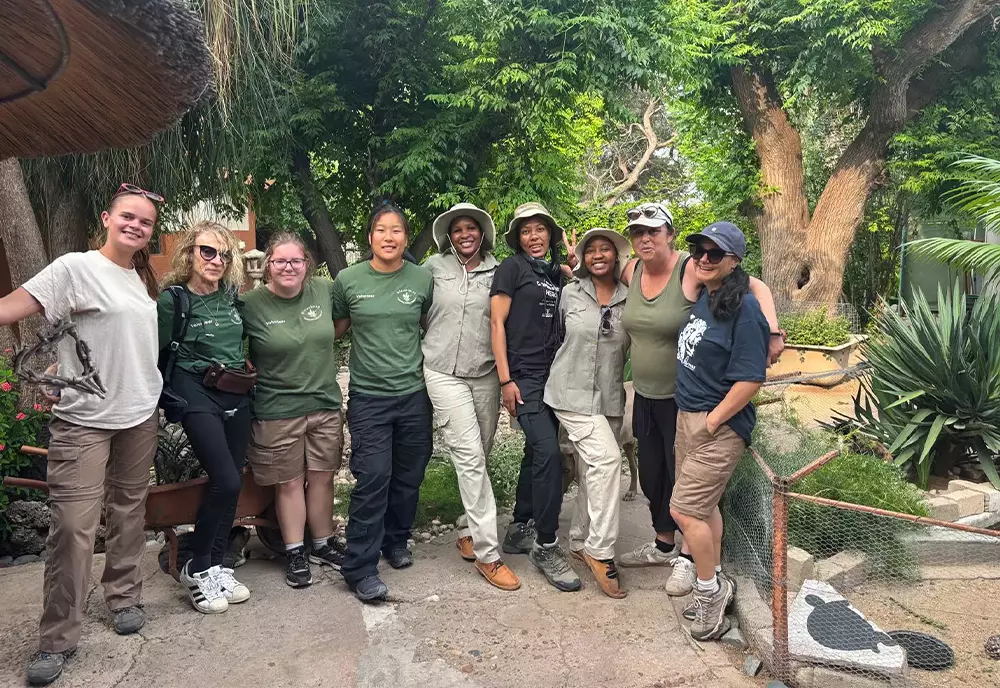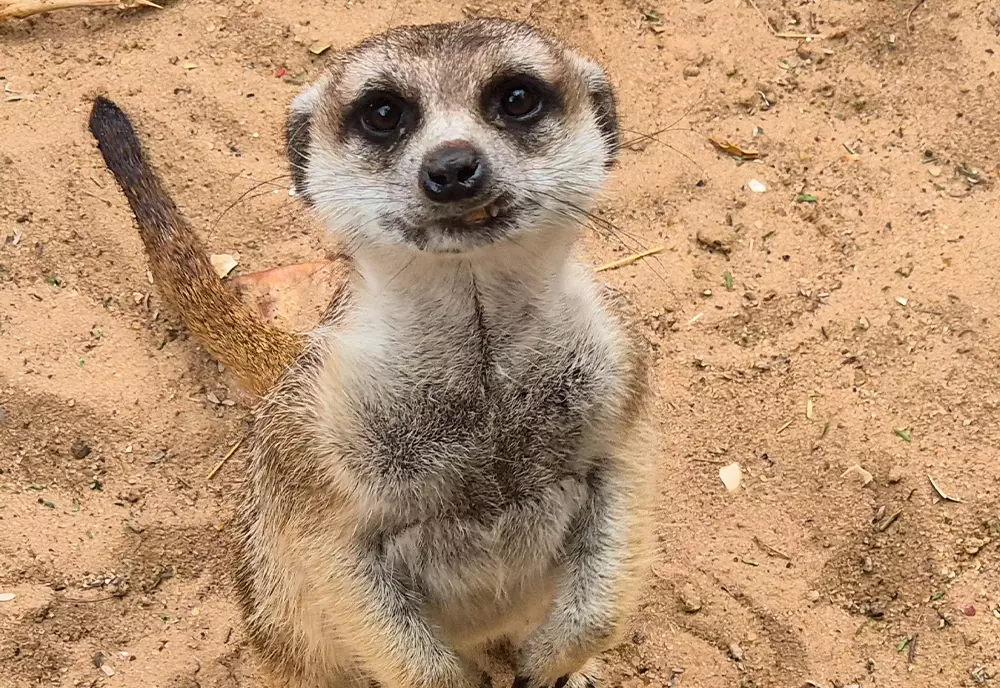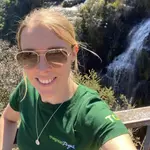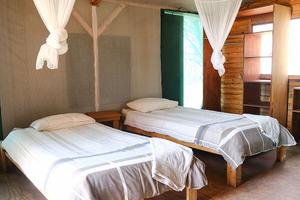

Harnas Wildlife Sanctuary
Join a life-changing experience in Namibia and make a real difference to the lives of some of Africa’s most endangered animals.
Speak To A Travel Expert
Activities
During your time on the project, you will take part in all of the activities listed below. These activities will take place on a rotational basis, with other activities not listed here potentially taking place too.
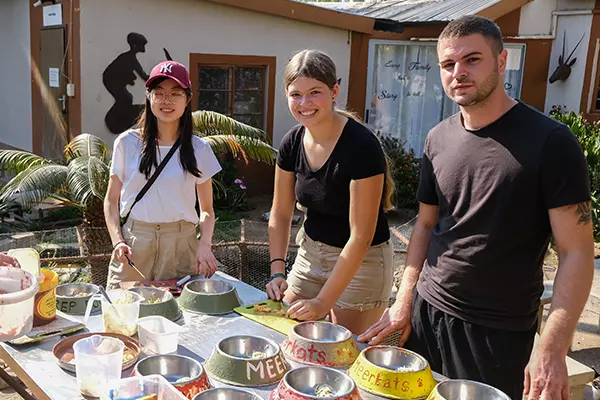
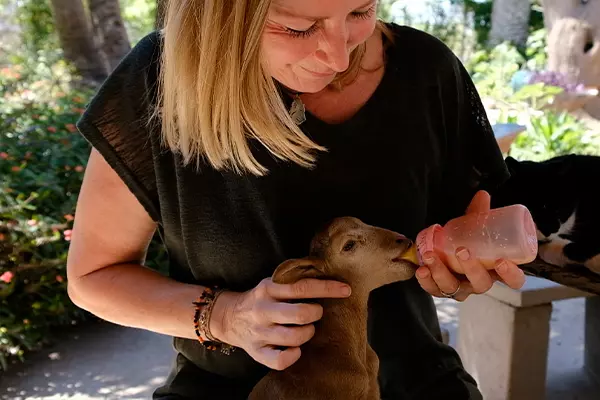
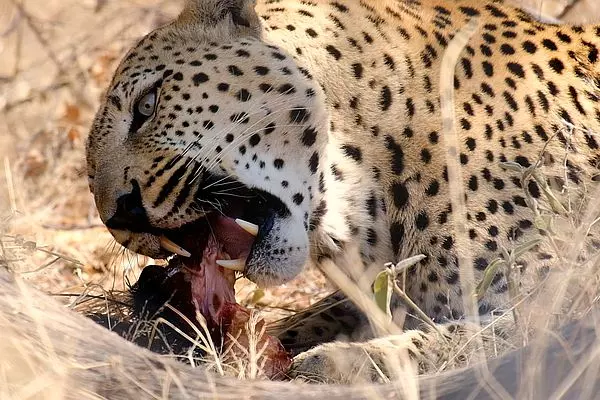
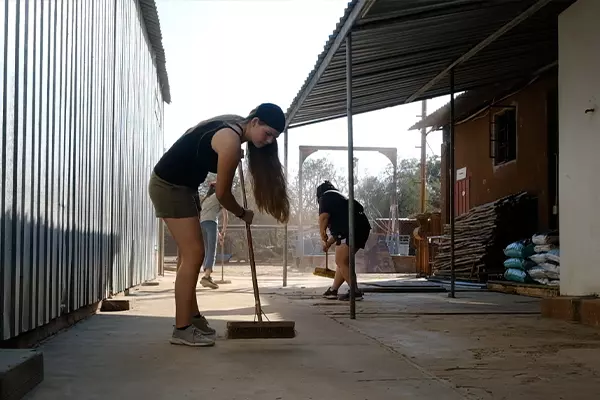
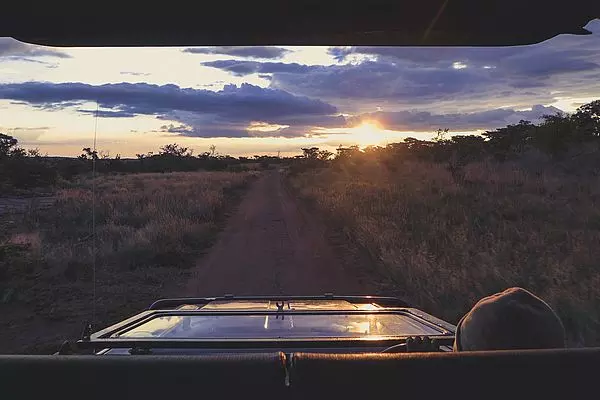
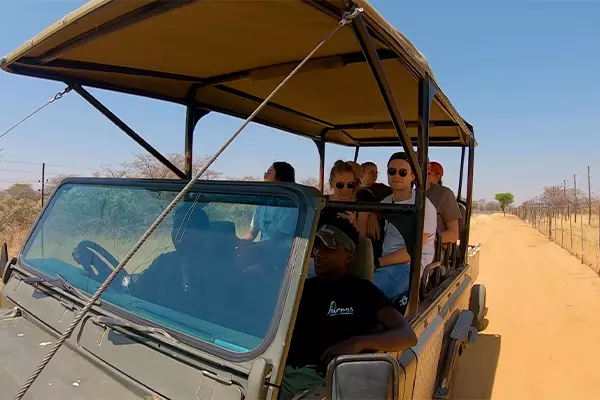
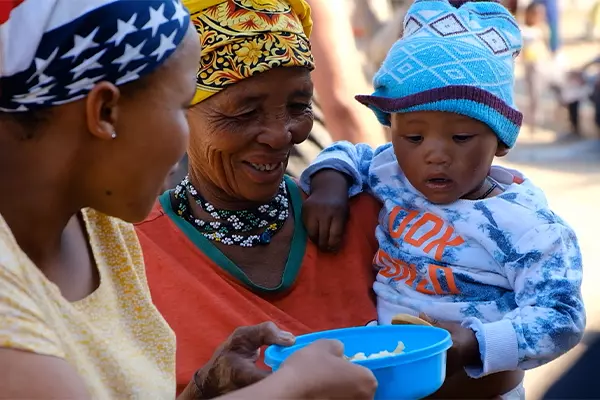
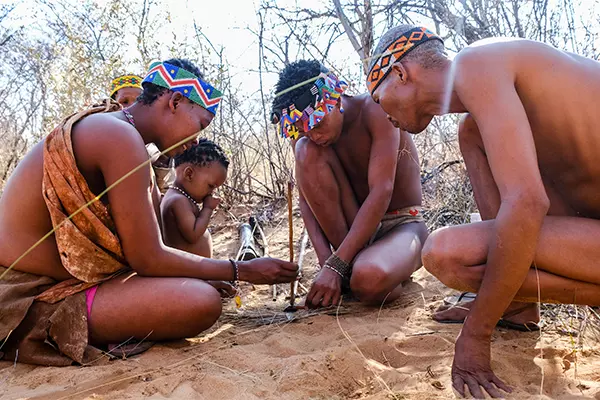
Itinerary
You can volunteer at the Harnas Wildlife Sanctuary for 2 to 12 weeks. Whilst on the project, you will be divided into smaller teams to ensure variety and equal opportunity when carrying out tasks and joining activities.
Durations & Prices
Accommodation
Volunteer Accommodation
Whilst at the sanctuary you will be staying in the volunteer village. You will be accommodated in a shared wooden cabin on a same-sex basis with up to 3 other volunteers (unless travelling as a couple in which case you will be accommodated together). Each cabin is solar-powered with ample storage space and mosquito nets provided.
Located close by are the bathroom blocks which offer hot showers and western-style toilets.
Accommodation Upgrade
For those seeking more comfort and some additional amenities, the sanctuary provides the option to upgrade to stay in one of the on-site private cottages. These all have an ensuite bathroom, air conditioning, a fridge, a sink and hot drink-making facilities. The additional fee to upgrade is $54 per person per night, and for availability, please get in touch with the Travel Team.
Meals & Beverages
Three meals a day are provided for you at the sanctuary, with water, tea and coffee freely available. Breakfast includes toast and cereal, with lunch typically consisting of a self-serve buffet with the option of sandwiches, wraps or hot food. Dinner is also served in a buffet style, and you can expect a variety of meat, rice and vegetables, and on Saturday evenings, there is a braai (a traditional African BBQ)! A vegetarian option is always available, and vegans can be catered for too. Additionally, a range of snacks and drinks (including alcoholic beverages) can be purchased at the bar.
Project Details
When is the best time to volunteer?
As this project is based at a wildlife sanctuary, there are animals here year-round, meaning there is no best time to volunteer regarding wildlife. The weather may, however, impact your decision, and there are two distinct seasons explained in more detail below.
October – April: During these months, the daytime temperature is between 27-32°C (81-90°F) and it remains warm at night with temperatures of around 15°C (59°F). December to March is also the rainy season with some rain expected every few days, but not too much.
May – September: This is the driest period of the year with almost no rain at all. It is also cooler during the day; however, temperatures still reach 28°C (82°F). The biggest difference during this season is the night-time temperature which is much colder and averages 7°C (45°F) but can drop below freezing. Therefore, if you travel during these months you will need some warmer clothes for the evening and also for the night-time game drives.
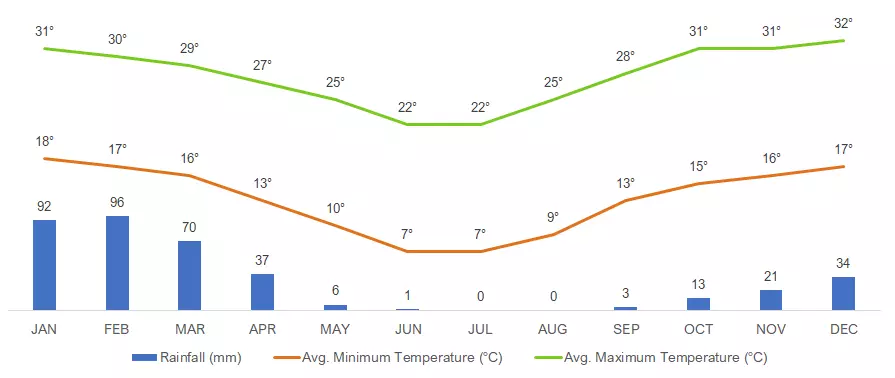
Booking Flights
You will need to fly into Windhoek International Airport (Hosea Kutako International Airport, airport code WDH) on your project start date, arriving by 9:30am at the latest. You will be met in the Arrivals Hall and transferred to the sanctuary in a private vehicle. This transfer will take approximately 3 hours, and after arriving, you will have time to settle in before meeting the team, taking a tour of the sanctuary and enjoying dinner.
It is essential to book a flight that arrives by 9:30am on your start date so you do not miss the transfer to Harnas. You can, however, arrive a day early and spend a night at the Namibia Wildlife Sanctuary (just 45 minutes from the airport) for an additional $115 if there are better flight options.
For your departure, you will need to book a flight that departs after 3pm on your project end date, as the transfer arrives at the airport at midday. If there are better flight options the following day, you can also choose to spend an extra night at the Namibia Wildlife Sanctuary for an additional $115. You can then be transferred to the airport at any time the following day in time for your departing flight.
Visa Requirements
Citizens of most countries, including the UK, USA, Canada, Australia, Germany and most of those within the EU, will need to obtain a Visa On Arrival to enter Namibia.
This visa can be obtained online prior to travel and will permit a stay of up to 90 days. You will need at least 3 blank pages in your passport (which must be valid for a period of at least 6 months from your date of entry) for the immigration officials to use, and you must pay the visa application fee of N$1,600 (approximately $95).
If you are unsure of your individual visa requirements, we recommend speaking to your local Namibian embassy at least 2 months prior to travel.
Fitness & Skills
You will take part in a range of activities on this project including some construction and maintenance tasks, therefore, a moderate level of fitness is recommended. There are no specific skills required; all we ask is that you arrive with a willingness to get involved with all activities and that you aren’t afraid to get your hands dirty! Respect for wildlife and the community, as well as the ability to work as part of a team are also important qualities for any volunteer.
Vaccinations
There are no specific vaccinations required to join this project; therefore, we recommend consulting your GP/doctor or a travel clinic and following their advice on vaccinations for travel. You can also find helpful advice and information on the Travel Health Pro website.
Videos
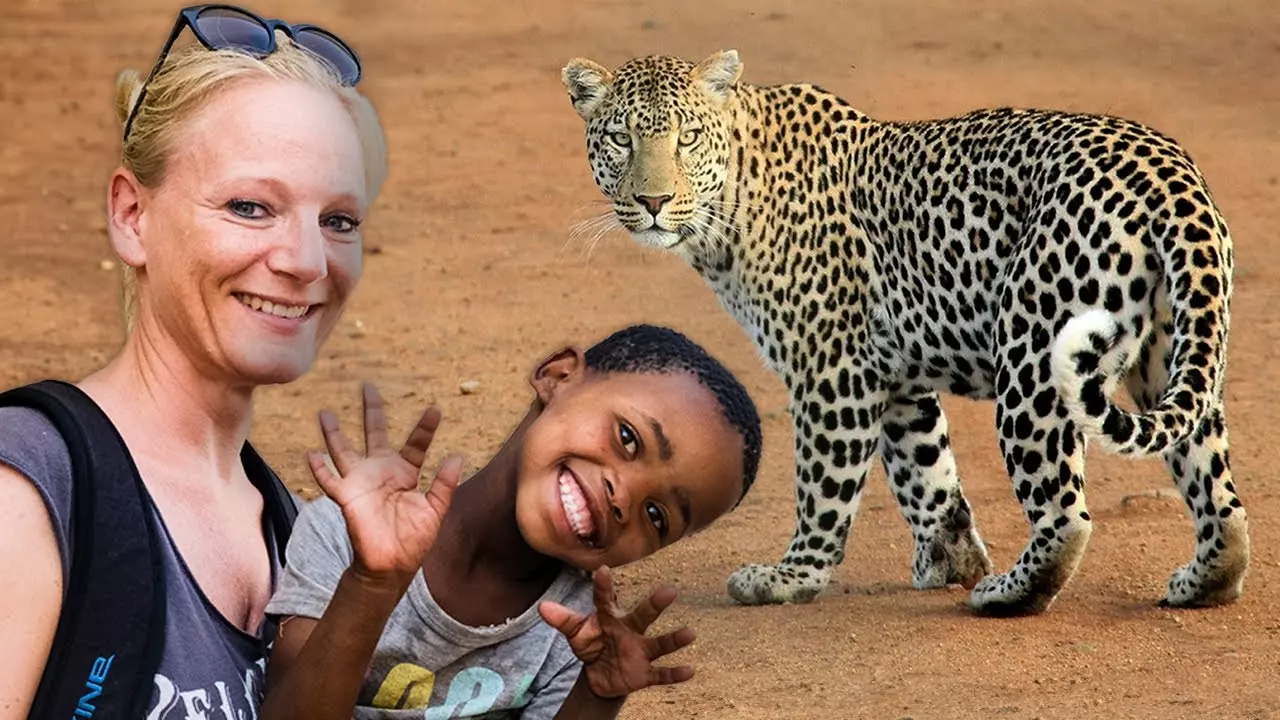
Experience The Harnas Wildlife Sanctuary
See what you could get up to as a volunteer at the Harnas Wildlife Sanctuary in Namibia! This volunteer project offers you the chance to get up close and personal with some of the country's most iconic species.
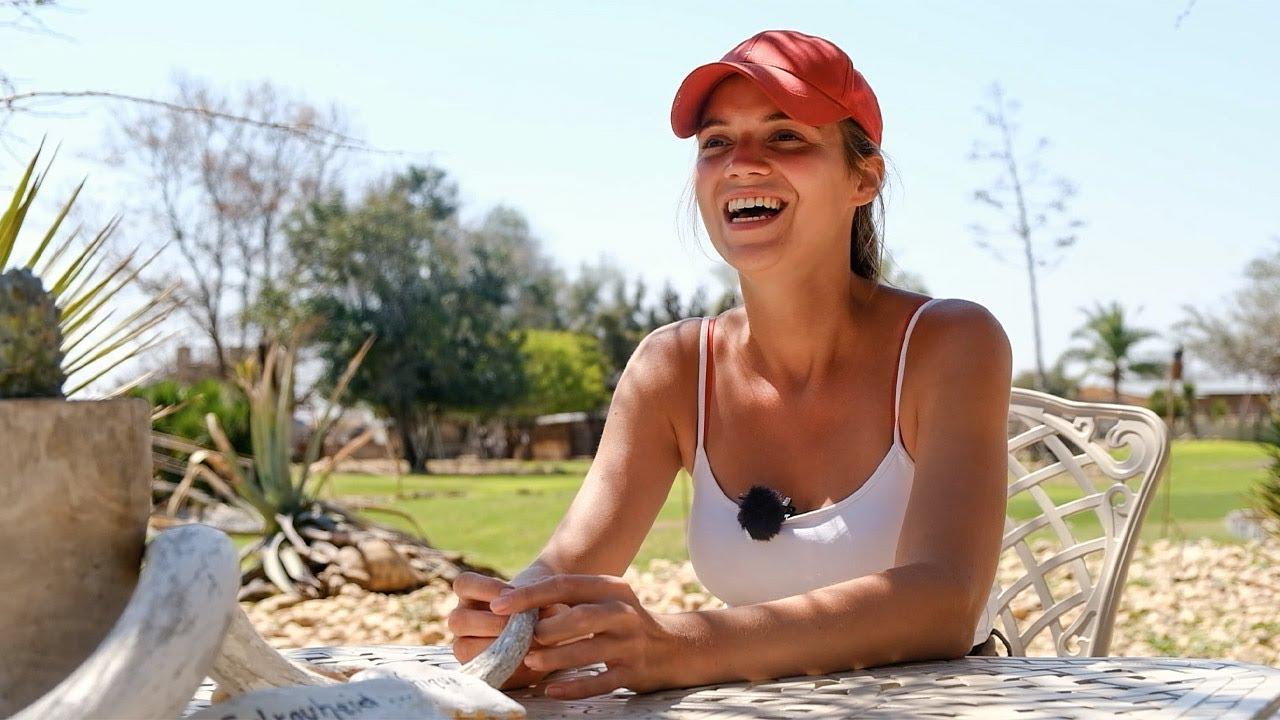
Volunteers Review Their Time at the Sanctuary
Meet Fidelia, Paolina, Ella and Tim who talk all about their experience volunteering at the Harnas Wildlife Sanctuary.
Gallery
News & Stories

A Special Treat for a Very Special Vervet
UPDATE | Feb 2026
Old Lady, one of Harnas’ oldest and most cherished vervet monkeys, has spent many wonderful years at the sanctuary. As she gracefully grows older, she’s showered with gentle attention, comfort, and all the love she deserves. This Valentine’s Day, the team even prepared a special “buffet of love” just for her, a small celebration of a life so well lived!

Two Kudu Calves Join the Harnas Family
UPDATE | Jan 2026
The Harnas family are thrilled to welcome two adorable kudu calves to the sanctuary grounds! Proud mums Misha and Melanie, once hand-raised on the farm lawn themselves, have now introduced the team to their very own precious new arrivals.

Beautiful Photos From a Rewarding Week
UPDATE | Oct 2025
Volunteers have had a busy and rewarding time lately, immersing themselves in the traditions of the San Bushmen, exploring behind the scenes at Lifeline, and watching the K9 Unit in action. They also slowed the pace with a scenic bushwalk tracking wildlife and preparing food for the resident animals. It's been a well-rounded week at Harnas!
Reviews
We, Daniel and Daniel from Switzerland, spent a unforgettable time at Harnas. We had a very warm welcome when we arrived from Maria. On the next day we got all information we needed for our stay from Paulina. Next day we met Leo, the Volunteer coordinator a guy with great knowledge and enthusiasm. We had to cut the vegetable and fruits for the animals. We could feed them. In the afternoon a group went to feed the lions the cheetahs and the leopards. That was an amazing experience. We also had to clean waterhole, clean fridges, cleaning and feeding the horses. As a special event we could witness the release of a caracal, that was very joyful. All people who works at Harnas have the heart in their job. I can highly recommend Harnas for a place where you can learn a lot about animals and yourself.
We spent two brilliant weeks in Harnas, a haven in the middle of the bush. We felt privileged to be able to be involved in the different activities, from preparing and feeding the animals to interacting with the local population through the school and the lifeline clinic, all guided by an extraordinary, devoted and dynamic team. Seeing the animals up so close was amazing and we are definitely considering going back.
What's Included
- Accommodation
- Transfers to and from Windhoek International Airport or Windhoek City
- Three meals per day
- Water, fruit juice, tea and coffee
- Full orientation and support from the project managers for the duration of your project
- A contribution to the project itself, including funding for items such as building materials, food, and animal medications
What's Not Included
- Flights
- Soft and alcoholic beverages
- Volunteer uniform (t-shirt & trousers/shorts) - approx. $42
































